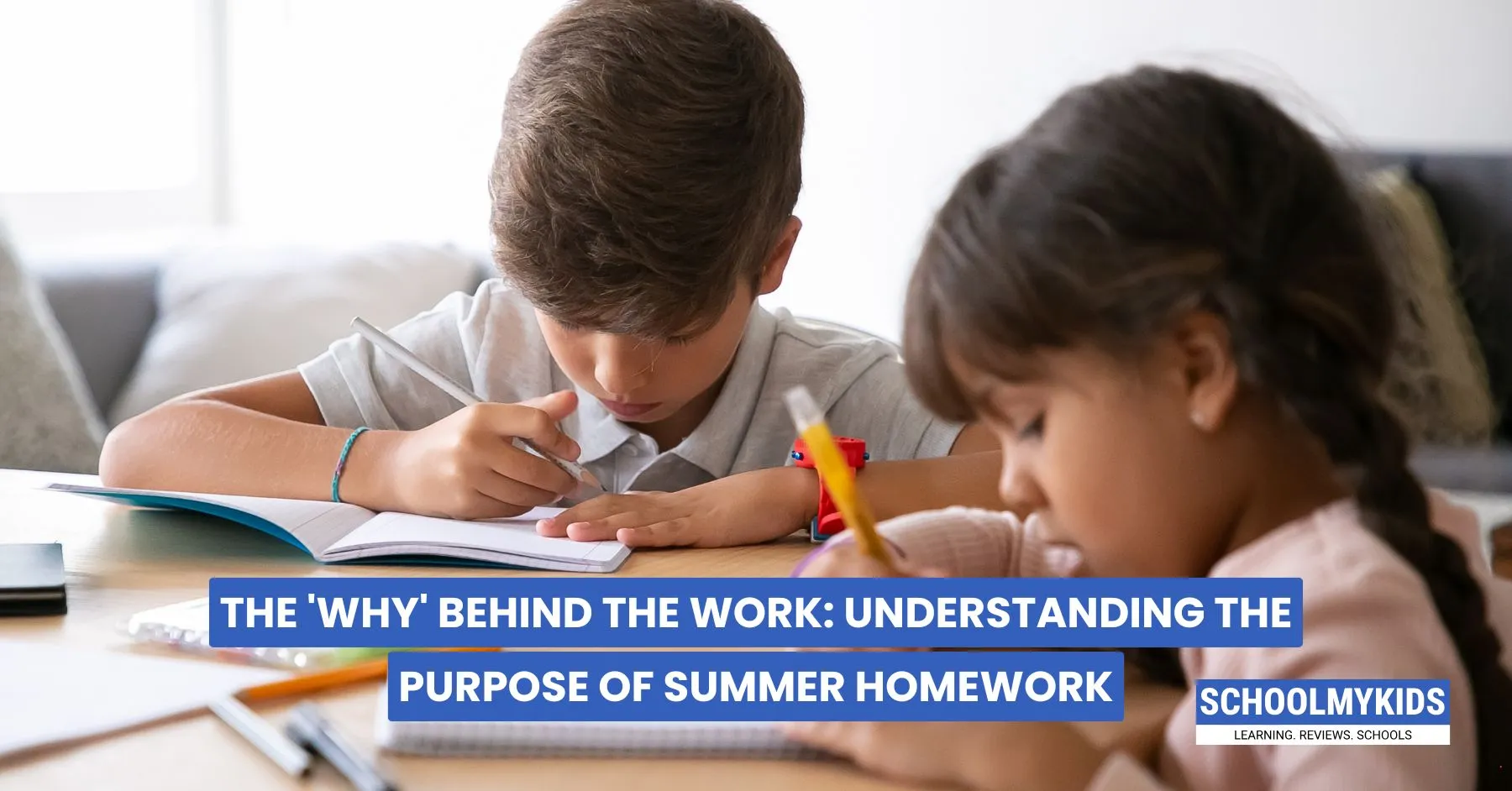If you’ve ever asked your child, “Why do you think teachers give summer homework?” you’ve probably heard some hilarious answers. Maybe it’s, “They want to ruin our holidays!” or “It’s just revenge for us being noisy in class!” Kids have a way of making homework sound like the world’s biggest injustice. And let’s be honest—when you’re a kid, summer homework does seem pointless.
But as parents, we know there’s more to it. The challenge is helping our kids see that without sounding like we’re giving a boring lecture. So, how do we break through the wishful thinking and help them understand the real reason for summer homework? Let’s decode their reasons, look at the truth, and find a way to make peace with those holiday assignments.
What Kids Really Think About Summer Homework
Let’s list out the usual suspects:
- “Homework is just a way for teachers to torture us.”
- “It’s a waste of time. I’ll forget everything anyway.”
- “No one else is doing it; why should I?”
- “If I had a holiday with zero homework, life would be perfect.”
Sound familiar? These are the stories kids tell themselves—and sometimes, they really believe them. But what’s the truth?
The Real Purpose of Summer Homework (Decoded for Kids)
1. It Keeps Your Brain Active
Imagine if you stopped playing a sport for two months. When you start again, you’ll feel rusty, right? The same thing happens with your brain. Summer homework is like a little workout for your mind. It keeps your thinking sharp, so when school starts again, you’re not starting from scratch.
2. It Helps You Remember What You Learned
Kids often say, “I’ll forget everything anyway.” That’s exactly why teachers give summer homework! A little bit of practice helps you remember what you learned, so you don’t have to relearn everything in the new year. It’s like saving progress in a video game—you don’t want to start from level one every time.
3. It Builds Good Habits
Doing a little work, even during holidays, teaches you how to manage your time and get things done. These are skills you’ll need your whole life, whether it’s for school, sports, or even your favorite hobby.
4. It’s Not Revenge—It’s a Head Start
Teachers don’t give homework to punish you. They want you to do well. Summer homework is a way to help you start the new school year with confidence. It’s like a warm-up before a big match.
5. It Can Be Fun (Really!)
Not all homework is boring. Some projects let you get creative, like making models, doing experiments, or even presentations about things you care about. You might discover something new you actually enjoy.
The Dream of a Homework-Free Summer: Is It Really That Great?
Every kid dreams of a summer with zero homework. Sleeping till noon, endless screen time, no schedules. Sounds perfect, right? But here's what really happens in that fantasy:
- Week 1-2: Pure bliss. Freedom feels amazing.
- Week 3-4: Boredom starts creeping in. There's only so much YouTube you can watch.
- Week 5-8: Days blend together. Nothing feels exciting anymore.
- Week 9-10: Actually missing some structure. Maybe even friends from school.
Then school starts, and suddenly, fractions feel like ancient hieroglyphs. That's when kids realize maybe a little homework wasn't so bad after all.
How Parents Can Help Kids See the Purpose
- Connect it to their interests: Love gaming? Find math games. Into art? Writing stories about their drawings counts as homework, too.
- Make it routine, not punishment: Set up a regular time that feels normal, not like you're taking away their fun.
- Show the benefits: When they remember something from last year easily, point it out. "See? That summer reading helped you understand this story better!"
- Be realistic: Not every assignment needs to be perfect. The goal is to keep their brain active, not creating stress.
Conclusion
The key is helping kids see summer homework as part of their summer, not something stealing their summer. It's like brushing your teeth - you don't skip it just because it's vacation, because taking care of yourself doesn't take a break.
When kids understand that 20-30 minutes of homework a day actually protects their three months of fun (instead of ruining it), they're more likely to get with the program.
Remember, the goal isn't to turn summer into school. It's to make sure that when real school starts again, your kid walks in confident and ready instead of feeling like they're starting from scratch.
So next time you hear, "But why do we HAVE to do homework in summer?" you'll have some solid answers that actually make sense from their point of view. Because sometimes, the best way to convince kids is to speak their language, and show them that homework during holidays actually protects their fun rather than ruins it.









Be the first one to comment on this story.